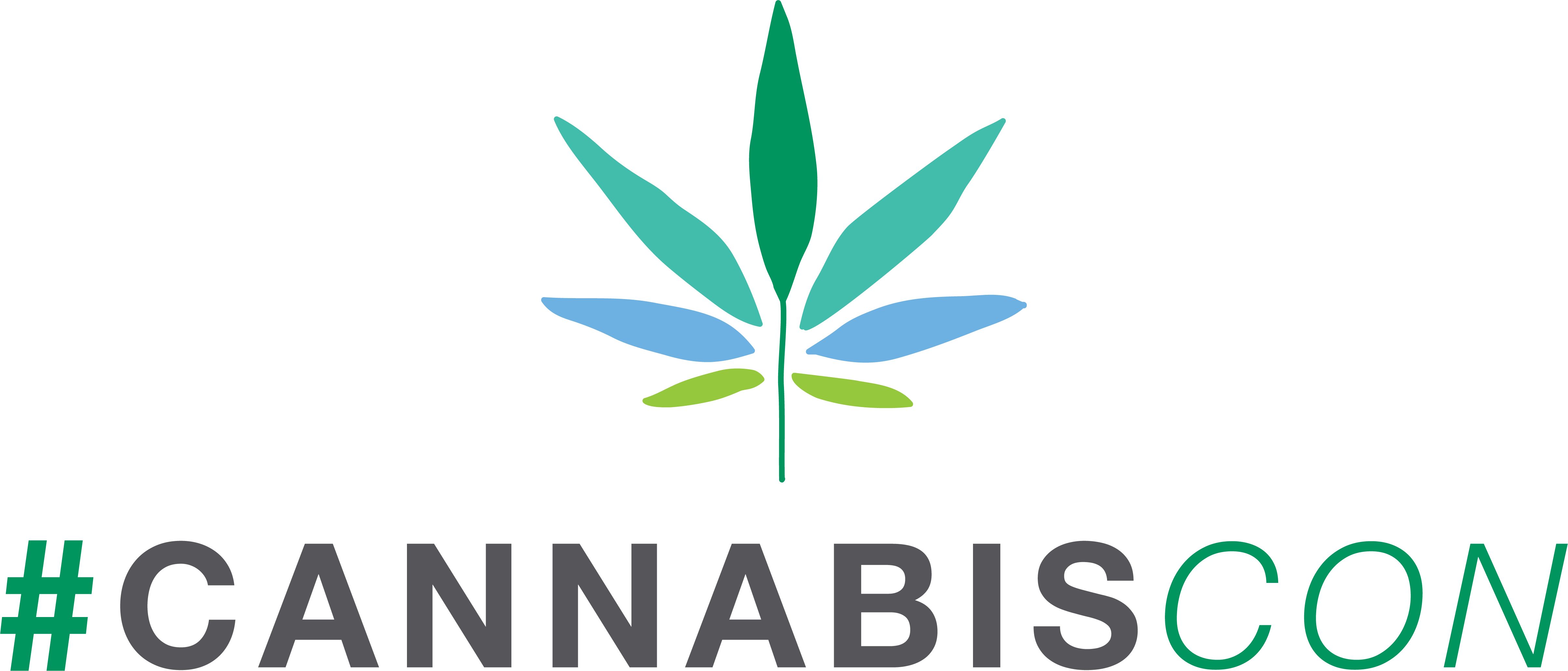“Cannabis Canada Forums offers insights on the opportunities presented by the legalization of both medical and recreational cannabis. Our forums have been designed to provide health care professionals with an opportunity to learn about cannabis in a program that will provide relevant and up-to-date education that will provide a sound base for bringing cannabis into their practices, if they chose.” - David Evans, Cannabis Canada Forums
The most recent regulations put forth by the Task Force for non-medical cannabis were influenced by previous medical regimes, specifically ones implemented to provide protection for security, safety, and product quality [4]. As stated in A Framework for the Legalization and Regulation of Cannabis in Canada; The Final Report of the Task Force on Cannabis Legalization and Regulation, the rights of patients to have access to medicinal cannabis has been recognized by Canadian Courts. The constitutional challenges first put forth to the Government regarding general prohibitions and access to cannabis date back to the late 1990’s, and in order for the general prohibitions to remain intact, the Government allowed medicinal cannabis access [4].
After several years of changes being made to the Marihuana Medical Access Regulations (MMAR), and then the Marihuana for Medical Purposes Regulations (MMPR), in 2016 the Government introduced a new set of regulations outlined in Access to Cannabis for Medical Purposes Regulations (ACMPR). The ACMPR has allowed medicinal cannabis users to purchase cannabis from a Health Canada licensed producer, produce their own supply of medicinal cannabis (congruent with their physician’s prescription), or to assign someone else to do so for them [4].
With legalization of cannabis in the medical and recreational sector set for July 2018, the Task Force has been set with the responsibility of addressing whether or not there should be one or two systems set up for recreational and medicinal cannabis, and it has been stated that many individuals and patients with access to medical cannabis have expressed their preference of maintaining two separate systems [4]. A two-way system would allow for focused attention on medicinal and recreational groups individually, treating medicinal as a medical treatment, requiring a different approach and set of research and guidelines than recreational.
The Final Report of the Task Force on Cannabis Legalization and Regulation has provided clear insight into the importance of medical cannabis interest by sharing how many Canadian’s have found a greater quality of life through the health benefits that cannabis has given them.
“Cannabis is making a difference to Canadians living with serious health challenges such as cancer, HIV/AIDS, multiple sclerosis, arthritis and fibromyalgia. We also heard about the role that cannabis can play in pain management and palliative care, and the relief that cannabis, particularly strains with high levels of CBD and low levels of THC, offers to children with severe forms of epilepsy.” A Framework for the Legalization and Regulation of Cannabis in Canada [4]
A common theme throughout much of the research and articles available on medicinal cannabis has been that patients generally come to medicinal cannabis use after exhausting all other more conventional medications and/or treatments [4]. On January 1, 2018, CBD (Cannabidiol), a cannabis compound found to counteract psychoactivity associated with THC while providing a substantial amount of medical benefits [6], has been taken off of the WADA banned substances list for athletes.
“Anecdotal evidence supporting the idea that CBD compliments athletic recovery has become increasingly easy to find, as more and more athletes admit to using it and other compounds in cannabis—but what we find most exciting about the lifting of the ban on this powerful cannabinoid is that it will allow athletes prone to concussions and repeated head traumas an opportunity to try a new method of treatment.” The World Anti Doping Agency (WADA) has Removed CBD from its List of Prohibited Substances [5]
With the changing cannabis landscape in Canada, at Cannabis Canada Forums, one of the most common questions we hear asked is “how do we access medical cannabis because my Dr. doesn’t prescribe it. What do I do?” People are searching for answers but are shut down because their Doctors either don’t know about it or do not offer it, yet. We want to show the path work required to finding alternative solutions by providing meaningful education.
“While they recognize that some patients may obtain relief from their symptoms through the use of cannabis, they told us that it is difficult to meet their obligations to provide patient care and to protect patient safety when they do not have the evidence, training or guidance to do so. As a result, many physicians are unwilling to support the use of cannabis as a treatment, leaving some patients unable to secure the medical authorization needed to purchase or produce cannabis.” A Framework for the Legalization and Regulation of Cannabis in Canada [4]
There is a real need for governments to work alongside medical communities to develop comprehensive medical school curriculum, education, and training to reflect changing legislations in addition to providing proper materials to educate and support patients on medicinal cannabis use.
As stated in The Health Care Industry Cannot Continue to Ignore Medicinal Cannabis it is a physicians responsibility to care for their patients, which includes the consideration of medical marijuana for treatment in certain cases. However, health care professionals are expressing that they do not know where to turn for this information [2].
“Will some people view the legalization of medical marijuana as the condoning and encouraging of marijuana for recreational drug use? The answer is “yes.” But this is not the direct intention of legalizing medical marijuana. The direct intention is to relieve pain and suffering that cannot be relieved by presently approved medications. This misinterpretation of the legalization of medical marijuana can be corrected through public education.” Medical Marijuana: Medical necessity versus political agenda [1]
Our event has been designed to showcase medical professionals who have been working with medicinal cannabis in their practices for the past one - two years, but who had little knowledge on the plant prior. These professionals will be able to speak organically to how and why they entered the market, concerns that came up and how they addressed them, along with how their professional lives have changed from the decision to incorporate medicinal cannabis into their practice(s).
In addition, we will be providing relevant and up-to-date research and scientifically supported materials through highly regarded members of their respective fields and the cannabis industry. Our events will also host members from the local provincial and municipal governments, which will provide attendees first-hand information face-to-face.
“To deny a physician the right to discuss, recommend, and prescribe marijuana to patients is a direct violation of the physician-patient relationship. To make an informed decision about their treatment, patients have the right to expect full disclosure and discussion of all available treatment options from their physicians. Failure to do this violates the patient’s right of informed consent.” Medical Marijuana: Medical necessity versus political agenda [1]
We believe that as the attention and issues surrounding cannabis become progressively common as the Canadian legalization date approaches, medical providers are in a position where they are obligated to take appropriate steps to gain proper information and education, seeking out and understanding current research, in order to be better positioned to meet the needs of their patients. Our event is designed to be the source for that education.
“We strive to aid in providing a better-informed base of medical professionals who have attended our events, and will be able to provide a higher level of patient care by knowing about the alternatives.” - David Evans, Cannabis Canada Forums
![]()
1. Medical Marijuana: Medical necessity versus political agenda; Peter A. Clark, Kevin Capuzzi, Cameron Sick; Medical Science Monitor, https://www.ncbi.nlm.nih.gov/pmc/articles/PMC3628147/, November 26, 2011
2. The Health Care Industry Cannot Continue to Ignore Medicinal Cannabis; Robert T. Hoban, Daphne Hamilton, Hoban & Feola; Safe Harbor Private Banking; https://safeharborprivatebanking.com/wp-content/uploads/2016/06/16-FEB-Healthcare-Industry-Cannot-Ignore-Cannabis-Hoban-Feola.pdf; February 29, 2016
3. What Canada’s Doctors are Concerned About with Marijuana Legalization; Darryl Dyck; The Canadian Press; https://www.theglobeandmail.com/news/national/what-canadas-doctors-are-concerned-about-ahead-of-marijuana-legalization/article34694165/; April 12, 2017
4. A Framework for the Legalization and Regulation of Cannabis in Canada; A. Anne McLellan, Mark A. Ware, Susan Boyd, George Chow, Marlene Jesso, Perry Kendall, Raf Souccar, Barbara von Tigerstrom, Catherine Zahn; Canada.ca; https://www.canada.ca/en/services/health/marijuana-cannabis/task-force-marijuana-legalization-regulation/framework-legalization-regulation-cannabis-in-canada.html#a5; “Chapter 5: Medical Access”; November 30, 2016
5. The World Anti Doping Agency (WADA) has Removed CBD from its List of Prohibited Substances; CBD Support for CBD Canada; https://www.buycbdcanada.ca/2017/10/11/world-anti-doping-agency-wada-removed-cbd-list-prohibited-substances/; October 11, 2017
6. What is CBD; Project CBD; https://www.projectcbd.org/about/what-cbd

